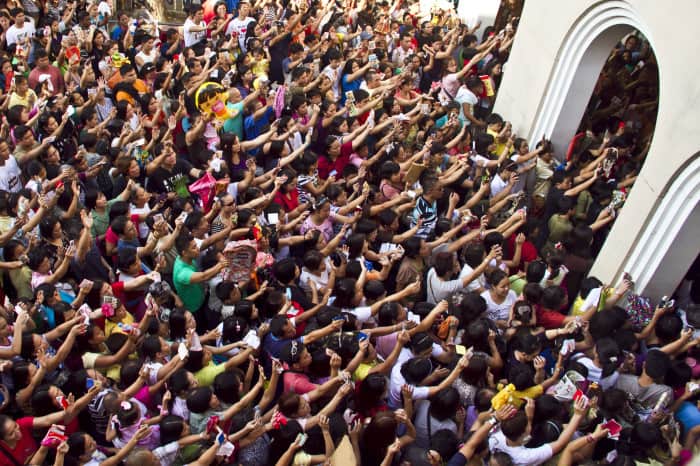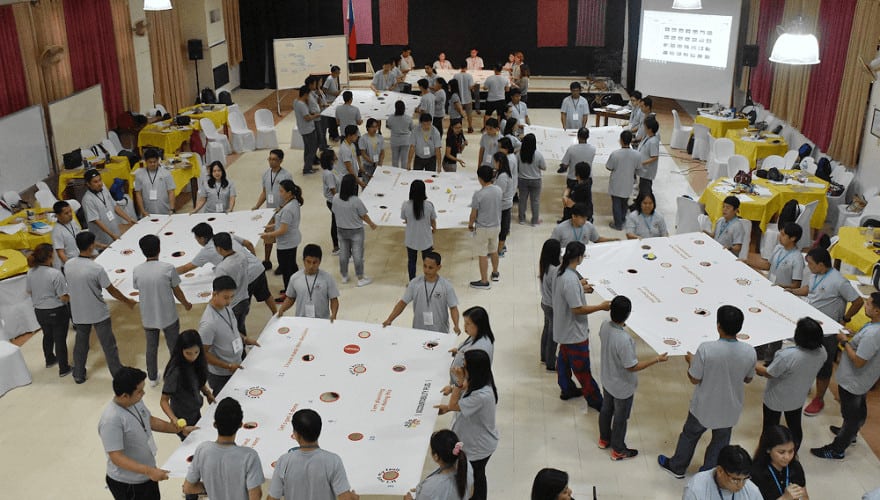When Filipino time becomes a joke, the cost isn’t humor—it’s lost hours, broken promises, and relationships that slowly lose respect. In this article, Jef Menguin shows why Filipino time should mean maagap—moving early, not rushing late—rooted in “daig ng maagap ang masipag.” Apply the shift and pass it on at work so your team becomes known for reliability, not excuses.
Filipino Time is the habit of being prompt and ahead of time. It is based on the Filipino value that promptness exceeds diligence (daig ng maagap ang masipag). Ordinary Filipinos are punctual and prompt.
My intention in writing this piece is not only to argue about Filipino Time. We need to change the way we see ourselves as a people. And if we are to pursue personal development, we must begin with how we see ourselves.
The practices of factory workers, farmers, fisherfolks, teachers, school children, and even church-goers will attest to the willingness of Filipinos to be on time, if not ahead of time.
Ordinary Filipinos prepare very early so that they always arrive at work, church meetings, social gatherings, concerts, and other events ahead of time. We are comfortable being at a meeting place ahead of everyone.
Stop the Colonial Lie
There is a widespread definition based on ignorance, one that originated from a colonial lie and racial slander. It says that Filipino time is the practice of being late for appointments. But being late has nothing to do with being Filipino. Being late has everything to do with self-regard and discipline.
Sure, some Filipinos have the habit of being late. But that’s not because they are Filipinos. There are humans around the world who also come late to meetings. That is not onli in da Pilipins.
Do you know that Winston Churchill deliberately came late to events? This is also the habit of many of our politicians. They want us to wait.
In fact, Filipinos’ promptness is highlighted when they go abroad. We stop the lie and start appreciating who we really are.
We were made to believe that Filipino time means being always late for a meeting. This is a colonial lie and a racial slander. It is a lie that was told to us for decades, repeated millions of times by our teachers who believe their colonizers, that it became our “justification” when somebody comes late.
Because of that colonial lie, we never considered that among hundreds of Filipinos who came early, only a few were late.
We are already free. Why do we need to keep a racial label, a colonial lie?
Most of the bad things we say about Filipinos are generalizations. We tend to copy our former masters though they’ve left and dead for decades.
Filipinos avoid being late for any meeting, so they prepare very early. Because of this, we often waste productive time.
Filipinos are willing to leave before the cock crows in the morning to get to work before 8 a.m. Filipinos are eager to travel for three hours for a 15-minute meeting.
Though there are Filipinos who are habitual late-comers, most Filipinos are too punctual.
The notion that Filipino time means being late to a meeting for an hour or two is a lie told a million times. Unfortunately, even our teachers in school repeat the lie. It was false information accepted hook, line, and sinker.
And please, there is no such thing as American time. Many Americans also have the habit of being late.
Read: Filipino Values That Shape Our Actions
We come ahead of time to be on time.
When a Filipino meets a foreigner, say in Starbucks, expect him to be there an hour early. We do not want to be labeled as someone practicing “Filipino Time” because the lie was perpetuated by people who love to put down Filipinos. That’s the tragedy.
The real meaning of Filipino Time in practice is the opposite of the lie. And it is the slander that gets the attention.
Imagine this: there are a thousand Filipinos in an assembly. Most of them came an hour earlier than the scheduled time. A few people came late. Then someone calls out those who are late as practicing Filipino time.
Insane, right? Are those who came early not Filipinos?
If you are a foreigner reading this blog, you will soon find out. You go to the countryside. You will find people who happily work, even for small pay, and they are always ahead of time.
If you are a Filipino who has been fed this lie, open your eyes. If you are a late-comer, you cannot say that all Filipinos are late-comers. There are people who procrastinate. From all over the world. Not just in the Philippines.
But we won’t label Americans who are latecomers as practicing American time, right?
This article is meant to correct the lie.
Here’s what I know.
It is common for Filipino politicians and self-important people to be late. That is because they want to get everyone’s attention. But not all Filipinos are politicians or think that they are too important.
I have read biographies and discovered that this intention to come late is true almost everywhere. For example, Winston Churchill did it so many times, mostly on important occasions. And he is not Filipino.
But if one insists on using Filipino time, we must use it to describe those 99 percent who came too early and on time.

Go to the countryside. Children walk some kilometers to reach their schools 30 minutes before the opening bell. When I was in grade school, it was my habit to be on the campus before 6 in the morning, though my class starts at 7.
Farmers go to fields before the break of dawn. Fisherfolks prepare their bancas long before the cock crows. Mothers wake up very early to prepare “baon” for everyone.
And if you happen to live in Metro Manila, you know that thousands of commuters have to be at the MRT station by 5 in the morning, so they will reach their respective offices before 8 in the morning. They’ll be there hours earlier for a 30-minute ride.
I know this because when I was living in Cubao, I get a bus ride to Makati around 5.30. I reached Makati around 6:15 0r 6:30 am.
When we come late, it was almost always because of the terrible traffic situation in the country.
Some would say that we need to adjust ourselves to the traffic situation. I find this thinking ignorant. I have experienced commuting for 3-4 hours for a 15-minute meeting. We waste much time on the road, and that’s the problem, not our sense of time.
When we have offsite team building sessions, many attendees leave their homes around 3 in the morning to be in our meeting place ahead of the agreed assembly time.
If one of 100 is late, I find it insulting to call that Filipino time since the other 99 who came earlier are also Filipinos.
When I fly, I ensure that I am at the airport 2 hours before the boarding time.
So, it is wrong to perpetuate the lies about “Filipino Time.”
An Expat’s Guide defines Filipino time as “being minutes to hours late compared to the standard time.”
What a way to put down Filipinos. This definition is based on ignorance. This definition repeats a lie that started during the American colonialization of the Philippines.
During the American period in the Philippines, the American colonizers invented the term “Filipino Time” to mean the habit of always being late to an agreed meeting time.
Actually, they are only describing the new ruling class after the Spaniards left the Philippines. This new class of Filipinos tried hard to imitate their former masters who deliberately arrive late to get all their attention. However, most Filipinos do come ahead of time.
It is my hope that the Department of Education will exert efforts to correct this like and call out people who continue to perpetuate this thinking without understanding.
This thinking is not valid.
Filipinos all over the country always come ahead of time if not on time. We are too punctual.
Those who have the habit of coming late do so not because they are Filipinos.
Time management is a problem most people share. You only need to google the phrase to find out that people are looking for ways to manage their time everywhere in the world.
In the olden days, it is easy to believe that being late is a Filipino problem. Not anymore. Our access to interwebs should be enough to correct our miseducation.
Read: Bayanihan, the Culture that Turns Ordinary Filipinos into Heroes
Daig ng Maagap ang Masipag
This Filipino saying expresses the attitude of Filipinos about time. We believe not only in punctuality but in being ahead of time.
Masipag means diligent or hardworking. We have always believed that we can succeed in life if we work hard and give everything we can.
For example, it has always been our pride that OFWs are known for being hardworking employees. Of course, Filipinos are intelligent workers, but this attitude towards work separates them from others.
We don’t do quiet quitting. Instead, we give more than what’s asked of us to do. This saying does not diminish the value of diligence; it shows how important it is to be ahead of time.
Maagap means being ahead of time. It does only mean being early to an appointment.
You can relate that to “the early bird catches the worm.”
But it goes beyond that.
You can be diligent and hardworking. But being diligent and hardworking ahead of time is better.
So, you go to a farm or go fishing before the sun rises.
You fix the roof before the rainy season comes. You do the hard work before it is needed.
That’s why the colonial meaning of Filipino time does not make sense to ordinary Filipinos. Of course, some people may have that attitude of being late to appointments, but every race has that kind of person too.
What is Filipino time?
Filipino time is the attitude of Filipinos who respect you and value your time. When meeting people, we believe we must come early and wait for you. We think it is embarrassing to be late for appointments.
Filipino time is the habit of Filipinos who are too punctual.
There, I said it. Write it down.
When given assignments, we submit them ahead of time. When attending an event, we get there before the actual event begins.
In short, the common misunderstanding about Filipino time is opposite to how Filipinos around the country live their lives.

Filipino Time & Our Mis-education
I mentioned above that the phrase “Filipino time” was first used when Americans colonized us. It is a colonial construct. The colonizers must have observed the practice of self-important nouveau riche Filipinos, who tried to act like the self-important old Spanish rulers.
It was said that being late for an event is something that Filipinos got from the Spaniards during their rule in the Philippines. Being late symbolizes their importance in society. Some Filipinos did try to act like their former Spanish masters.
But Filipinos have always been punctual. So, this slander does not apply to them.

Colonizers Coined Filipino Time
Our former caucasian masters put down our culture, as is evident by how they describe “bahala na” as fatalism or trivialize bayanihan as a “group of men carrying a house to a new location.
They represent the activities with disdain that they failed to recognize the spirit behind each.
They miseducated us so they can continue to rule us.
Instead of being proud of who we are as a people, we look down on ourselves. If we look down on ourselves, we assume that others are better than us.
Caucasian rulers don’t have to show their racist attitude toward us when we already look down on ourselves.
Filipino time is the opposite of what we are often told. So, educate yourself. And correct the miseducated.
Read: Five Ways to Cure Manana Habit
Stop the Slander
Some Filipinos developed the habit of putting down most of us Filipinos. They don’t think they belong to us; they belong to their masters. They perpetuate lies, not so different from modern-day paid trolls.
This is why, even on the internet, you will find many articles written by Filipinos that regurgitate the BS. What they are describing as Filipino time in their articles does not represent the Filipinos I know.
They themselves take pride in the knowledge that they practice “American time” because they are always on time.
They live comfortable lives.
They, do not have to wake up at 4 in the morning to prepare for work.
They have never experienced the life of school kids in rural areas who have to walk kilometers to get educated.
It is as if they become better persons when they point to us our flaws as a people. They want us to agree that Filipinos are not as good as others.
They have muddy spectacles.
To label is to libel.
The phrase Filipino Time, as coined by our American colonizers, is a label grounded on ignorance and contempt. And they continue to spread the fake narrative.
When someone is late for an appointment, people are quick to say that that is “Filipino time”. They speak as if the majority, those who came early, are not Filipinos.
It is incumbent upon us to correct the miseducation and define Filipino time based on how it is practiced by us – Filipino time is ahead of time.

Filipinos Are Punctual
In the Philippines, most people come earlier than the set schedule. Be it a wedding, baptism, or wake – they often come earlier. Many Filipinos come earlier than the hosts.
In many rural areas, people leave before the crack of dawn. They don’t want to be late.
We don’t want to be late because we apologize profusely or invent excuses so the other party will forgive us when we do.
That’s why we come early.
When I was in grade 1, our first class starts at 7 in the morning. Do you know that most of us are already in school an hour before school time begins?
Oh, I still remember that when I was young, the census office was located in Sta. Mesa. The office opens at 8 am. But the queue starts at 5 in the morning. And that is already a long queue.
Being too early is a waste of time. You can blame it on the government’s inefficiency. But people don’t call it Filipino time though those who went very early are Filipinos.
Filipino time means ahead of time.
No posts
Self-Important People Make You Wait
Only the self-important people choose to be late as if doing so will increase their stature in society. In truth, they don’t respect you. They look down on you, so they choose to keep you waiting.
When someone is late, don’t think that he is showing you what is common to Filipinos. Filipinos come ahead of time.
I learned from watching The Crown that important people like former Prime Minister Winston Churchill deliberately want to make themselves the last person to arrive. Except, of course, when they are meeting the Queen.
While watching the House of Cards, I concluded that the “self-important” people are always the last to arrive.
Do you get me?
When a person is on time, they call it “American time.”
Not true.
I know many Americans who come late to appointments. Not only that many of them do not always come on time, many of them do not also make the most out of their time.
But forgive me, an American who is always late, or who keeps you waiting is not practicing American Time. The behaviors of a few Americans should not be attributed to all Americans.
Do you not wonder why Americans have to invent Time Management and why productivity blogs sell?
I made appointments with Italians, Germans, Canadians, Polish, Malaysians, Chinese, Singaporeans, etc. Most of them came on time, and a few came late.

Read: What Leadership Is
Tardiness of The Self-Important
Being late has nothing to do with race. And though I have limited experience as I have not traveled around the world, I must speak.
The problem with time is a reality everywhere.
Our understanding of Filipino Time is miseducation. A little reading of Philippine history will show the opposite. Travel around the country, and you will find many Filipinos who value their time and respect yours. We come early, sometimes too early.
To disabuse our young people’s perspective about Filipinos, we need to have another set of eyes.
Focus on the Positives
Look for their flaws, and you will find many. Find their strengths, and it will not take you long to discover their beauty. You will understand why people from other countries decided to live in the Philippines.
If you are a Filipino, you better redefine Filipino Time to those who were miseducated.
Be proud of our tradition of being early in every meeting and event.
I can say the same if you are an American, Italian, Polish, German, Malaysian, etc. You will see the world the way you want to see it. You may need a new set of eyes.
Trust that we will not keep you waiting as we respect you and your time. Because making the best use of time speaks about how we value our lives.
If you are looking for opportunities to give your people training on time management, offer a module on Filipino time. Make it clear that you are proud of Filipinos who continue to respect people by being prompt and early.
Filipino time is an attitude of Filipinos who respect you and your time.
Questions
If you want Filipino values to show up as real behavior at work…
Let’s turn it into a culture shift experience.
→ Shift Experiences




Ang turo ng teacher ko nung highschool, Pag dumadaan daw ang mga Americano sa mga bahay ng mga Pilipino nakikita nila na nagsisyesta na sila, mga (9-10 am) Kaya tamad ang tingin nila sa atin dahil mag tatanghali na ay nakahiga pa, Pero ang di nila alam na ang mga Pilipino nung panahon na Yun ay tapos na sa lahat ng mga Gawain sa bahay at bukid. Dahil madaling araw palang ay bumabangon na ang mga Pilipino para mag linis at mag trabaho.
I disagree. I do respect your perspective as the standard may vary depending on your culture. In the country where I’m from, Korea, Promise/ Appointment takes very important. less than a 1 minute of tardiness is large enough issue for one to be nagged/ criticized, and taking more than 10 mintue in stabilizing unstable connection to internet is a valid reason to demand for whole month’s worth of refund, and free cancelation of subscription for unable to provide the service they guanranteed. Let alone official appointments like those I mentioned, even the less important non-official appointments must be kept, such as taking extra minute for lunch, few minutes late for meeting with friends could be lead to violent quarrel. While in Philippines, I’ve been waiting for tens of minutes or even an hour in non-official meet ups, appointment with doctors, and official meetings, days in waiting for internet connection to be fixed, and months delay for construction schedule, and etc. Experiencing both culture, I can assure you that Filipino time is real, and an assignment to be solved. P.S Matagal na po ako sa pilipinas(16years), so please don’t pre-assume that I haven’t experienced enough, and I’m writing this while waiting for an hour for another doctor to get back to her clinic from her lunch.
So, if you experience the same delay in Cambodia, Indonesia, or Bangladesh, are you going to call it Filipino time too? I met some Indians in Manila, and on many occasions, I had to wait for some minutes. I am curious if it is right to call it Indian Time. How about those Filipinos who are always ahead of time, what kind of time are they practicing? Is that American time, as Filipinos are often told? My problem is when we put Filipinos in a box as if everyone shares the same value about time. One reason why I gave many examples in this article is to illustrate that the so-called Filipino time is a generalization. Some people do not value time. And you can find this kind of people in other countries too. With regard to Korea, I have not been there. I only watched Korean series on Netflix. I watched Dr. Romantic the other day. And I learned that when it comes to hospitals, it is not always first come, first serve. Being late is not a Filipino culture. We do not cultivate it. We do not encourage it. If it were, we won’t be angry with latecomers. If it were part of our culture, we won’t dismiss employees who are always late. I know that you speak based on your experiences. I speak based on my experiences too.
Good day Jef,
I am PMAJ MAGILAS S SALVACION. I an organic member of the PNP and currently the Action Officer of the Police Strategy Management Unit of the PNP Health Service. Almost 22 years in the police service and these had educated me a thing or two about time and how importance it is.
Thank you for publishing this article and I commend you for an in depth take on redefining “FILIPINO TIME.” Although, some of the statements are really strong against our former colonizers, I understand what you are conveying. Like you, I also saw our past had been a major factor of forming our current culture today. But, I do argue, that we also let it endured… not realizing that we have the option to change and continue only what is beneficial and destroy what is not.
I agree that the negative connotation and racial depiction that tags Filipinos as laggards are demeaning and derogatory. I also want to add that WE have an utmost respect for others, especially our elders… that is evident by one of the most unique greetings in the world “MANO PO” (like the bow of the Japanese / Chinese and “wai” in Thai / Cambodians). Although, it can also be a subjugating culture… I find it endearing and contradicts the connotation that we don’t know how to respect time.
I especially like the part of this article that we have been mis educated by our elders and people who propagated that negative statement.
Personally, punctuality is a sign of respect for others time. Hence, if our culture weights heavy on respecting others, then it is logical that we also respect time.
Salamat po. I agree that punctuality is a sign of respect for others’ time. I sometimes find myself very passionate about writing a piece like this. Having been to other countries in Asia, I know being late isn’t Filipino time. But I know also that I am going against decades of miseducation. By continuing to call the habit of being late “Filipino time”, the bad habit is being sold as cultural, and therefore, a normal thing. We do not take this lightly, although we try to understand others given our context (the typical third-world problems). It is high time to redefine Filipino time in our schools. And Frankly, I am seeing improvements in many of our government offices. We were able to solve many of our problems through system and process improvements.
This is an interesting take… I initially googled “why are people in the Philippines always late”. I’m a foreigner who’s been in the Philippines for years and not once has anyone been on time to plans we made. I wanted to find out if it was a cultural thing or not. This article didn’t help because it is sadly not applicable to my experiences but it did open me to a certain perspective. Also I’m from France and we do have “American time” (being too early) and “French time” (being late and ‘just chilling) hahaha!Thanks.
I understand. The question assumes that Filipinos are always late. Most Filipinos think the same way too, but when they do they think of “other Filipinos”. And I am yet to find someone asking, “Why do Filipinos need to wake up at 4 in the morning to be on time for 8 am work? Or how do Filipinos get to work on time though the transport system for the masses is terrible?
As I have said, ordinary Filipinos cannot afford to be late. I am one of those who drive for 3 hours so I can be in clients’ offices 15 minutes before the meeting starts.
One good effect of the quarantine in the Philippines is that many of my clients are now used to meet via Zoom. (But I still open the meeting 15 minutes before the meeting time. Habits are not easy to break.
How to Avoid Filipino Time?
I remember that when I was in high school, I could count in my fingers the number of students who came late to our morning session. Many students were already inside the campus by 6 am though classes start at 7 am.
I left home at 5.30 in the morning, and I often get to the gate of the school before 6. I was not even the first to arrive. It was a habit that started in Camotes Island, Cebu when I was in first grade. (There was no kindergarten school in our town during those times. Every 7-year-old child starts at grade 1).
So, I am still surprised these days when students get an assignment like, How to Avoid Filipino Time.
Our teacher told us to write an essay based on that question. When I was younger, I did not see anything wrong with that.
But when I was in college, and I learned how the term came to be, I realized that my teacher was one of those who perpetuated the lie.
By saying that Filipino Time must be avoided, she conditioned us to believe that something is inherently bad about being a Filipino.
The problem is when we have teachers who do not examine what they teach.
To encourage punctuality, a teacher may come up with the following questions instead:
Why do Filipinos wake up so early to come to work?
Why some students are in our school 15 minutes before the bell rings?
Why do Filipinos believe that promptness trumps diligence?
How can students manage their time?
How can one make the most of his time? (I got a short answer here: I resolve to make the most of my time.)
There are beliefs behind our questions. Let us evaluate our beliefs to teach our children what’s right. Correct the lie. Focus on the positive.
Filipino Time is a label. It is racist. It is a derogatory term used to make Filipinos feel bad about themselves.
Look for Japanese Time or American Time, and you will know that those terms do not exist. Not because no American comes late to a meeting. Not because no Japanese comes late to a meeting. But because it is not right to lump a group of people together and call them names.
But I am writing about it because I want you to know that either we stop using the term or reinvent it to inspire our people. As I have said, the derogatory meaning did not apply to most of us. It is not in our DNA.
Some people do come late to meetings because of many reasons. Some are valid, and some are not. But it has nothing to do with them being Filipinos.
In every culture, there is a word for tardiness.
As a people, we believe in being early. Daig ng maagap ang masipag.
January 2, 2022